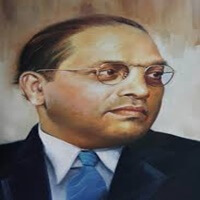Polity One-Liners for various competitive examination
Thank You for landing the Polity section page.
Here are some important Polity one-liners for students competing for various exams
Watch some of the important Polity Bits below.
1- The term ‘sovereign’ means-
(A) Free from external control
(B) Free from internal control.
(C) Free from territorial disputes
(D)Free from control by any international body.
2-The Preamble to the Indian Constitution declares India as
(A) a Federal, Democratic, Republic
(B) a Sovereign, Socialist, Secular, Democratic, Republic
(C) a Socialist, Democratic, Republic.
(D) a Sovereign, Democratic, Republic
3- What is the nature of the Constitution of India?
(A) Very rigid
(B) Flexible
(C) Partly rigid, partly flexible.
(D) Rigid
4- This among the following members were initially in the Constituent Assembly of India.
(A) 310
(B) 389
(C) 304.
(D) 300
5- The idea of a federation of states was first proposed in whose report?
(A) Sarat Bose.
(B) Rajagopalachari
(C) Shyamaprasad Mukherjee
(D) Motilal Nehru
6- Who was the President of the Constituent Assembly of 1946?
(A) Jawaharlal Nehru.
(B) Dr. Rajendra Prasad
(C) Abul Kalam Azad
(D) Vallabhai Patel
7- On which date and year, the Constitution of Independent India was put in practice?
(A) 15th August 1947
(B) 26th November 1949.
(C) 26th January 1950
(D) 26th January 1951
8- He was the Chairperson of the Drafting Committee set up by the Constituent Assembly.
(A) Dr. Rajendra Prasad.
(B) Jawaharlal Nehru
(C) Vallab Bhai Patel
(D) Dr. B. R. Ambedkar
9- This among the following was the biggest source for the Constitution of India.
(A) The Government of India Act, 1919
(B) The government of India Act, 1935.
(C) The Indian Independence Act, 1947
(D) Indian Councils Act 1909
10- In which among the following the concept of the welfare state is included in the Constitution of India?
(A) Preamble.
(B) Fundamental Rights.
(C) Fourth Schedule.
(D) Directive Principles of State Policy.
11-Equal pay for equal work for both men and women comes under-
(A) Statutory Provision in Labour Law.
(B) Directive Principle of State Policy.
(C) Fundamental Right.
(D) None of the above.
12- In which among the following, the Fundamental Duties have been included in the Indian Constitution?
(A) 42nd Amendment.
(B) Ninth Schedule.
(C) The chapter on Directive Principles of State Policy.
(D) The chapter on Fundamental Rights.
13- This Article of the Constitution of India guarantees to all citizens the freedom of speech and expression.
(A) Article 16.
(B) Article 17
(C) Article 18
(D) .Article 19.
14- This part of the Constitution directs the State to establish a Panchayati Raj institution in the country.
(A) The Preamble.
(B) The Fundamental Rights.
(C) The Directive Principles of State Policy.
(D) None of the above.
15- The total strength of the Rajya Sabha cannot exceed
(A) 150 members
(B) 250 members
(C) 350 members
(D) 310 members
ANSWERS
1-Free from external control.
2- a Sovereign, Socialist, Secular, Democratic, Republic.
3- Partly rigid, partly flexible.
4- 389.
5- Motilal Nehru.
6- Dr. Rajendra Prasad.
7- 26th January 1950.
8- Dr. B. R. Ambedkar.
9-The government of India Act, 1935.
10- Directive Principles of State Policy.
11- Directive Principle of State Policy.
12-42nd Amendment.
13-Article 19.
14- The Directive Principles of State Policy.
15- 250 members.
Watch more Polity here
Watch Current Affairs section for here
